 sometimes when I give a talk these days, people offer me an honorarium. i guess this marks movement beyond the who is chris uggen? career stage, into the short-lived but delightful overrated stage. In academic life, an honorarium is simply payment to visit, lecture, review books for publishers, and do those other scholarly things we do. more formally, an honorarium is payment to any professional for services that do not legally or traditionally require a fee.
sometimes when I give a talk these days, people offer me an honorarium. i guess this marks movement beyond the who is chris uggen? career stage, into the short-lived but delightful overrated stage. In academic life, an honorarium is simply payment to visit, lecture, review books for publishers, and do those other scholarly things we do. more formally, an honorarium is payment to any professional for services that do not legally or traditionally require a fee.aside from travel reimbursements, i never request money to visit or talk. such visits are too much fun -- people treat you very well, the audiences are friendly and laugh at your jokes, and the intellectual exchange is great. the only downside is reentry shock when returning home to piles of laundry and dishes, students who are somewhat less excited about your lectures, and buying your own drinks. i try to give colloquia or talks whenever the schedule permits, though i try to limit guest-lecturing in actual classes to the minnversity unless i'm also doing a department talk.
no matter the amount, my benefactors always characterize it as a “small honorarium” or a “token.” sometimes said amount approximates my weekly take-home pay; other times it is smaller but never trivial. that is, if they are only going to give you ten dollars, they don’t call it an “honorarium.” instead, they call it “lunch.” one kind and generous host, who clearly had never seen my car, said that he hoped that their small honorarium ($500!) would not insult me. we use such language, i suppose, because actual famous people who get honoraria are either too rich or too pure to be be tainted by $500. so, we talk as though such amounts are trivial because donald trump (or bill cosby or bill clinton or nelson mandela) might really be insulted by a speaker's fee of $500. when inviting speakers to my department, i learned that a few famous sociologists -- often those the grad students would most like to see -- charge five-figure speaking fees. i guess they might be insulted by $500 too.
i’m never insulted, but I often feel guilty taking money to talk (i feel much less guilty taking money to review books because, well, i'm not the most voracious reader in the discipline). when a department chair hands me a check after a visit, however, it feels a little like bringing dirty cash into the pure house of love (just leave the money on the nightstand, honey). of course, i report my outside earnings to the government and the minnversity on a report of professional activities form. i also try to think of productive ways to spend it to assuage the guilt:
1. direct honoraria to charities. i sometimes try to redirect the honoraria to some group or charity i find worthy or interesting. last year i tried to divert an honorarium to a musician's hurricane relief fund. unfortunately, that created a hassle for the accountants. so, they still ended up cutting me a personal check.
2. formally redistribute honoraria to research assistants. sometimes i've involved grad students in public criminology work that does not pay or pays very little. so, i've cashed my check and then written them a personal check. because i'm still liable for the taxes on the income -- and i'm taxed at a much higher rate than the students -- my accountant thought this was about the funniest thing he'd ever heard. "ha ha! that's a good one - you're a real smart professor, all right. how long did you go to school? and you're teaching my kids?"
3. informally redistribute honoraria. this is a little sketchier. instead of cutting an actual check, i just try to buy meals and libations at conferences and such for grad students and friends. these are expenses i feel a little guilty about when the mastercard bill comes, but i assuage the "taking money off the family table to live it up in san francisco" guilt if i've got a little "honoraria" money offsetting it.
4. shovel it into the family furnace. sometimes i just put it into the checking account, where it burns away immediately, leaving not a trace of evidence that it ever actually existed.
none of these seem satisfactory. i'd really like to find some way to use the honoraria more meaningfully and productively. so, i've got a new idea, inspired by joseph 'jazz' hayden, a formerly incarcerated person. a few years ago, mr. hayden quieted a large group of lefty academics, activists, and policy types by raising a simple question. i don't remember his exact words, but it was something like, "i'm so happy and proud to see all you fine professors and experts here this morning to talk about prisoners. all your writing and talks and concern and activity is so very important. but can you just just give me one example and tell me one little thing that any of you have done to help the brothers in the penitentiary?"
ouch. his question really got to me. i've been making good money for the past decade talking and writing about crime and reintegration, but what have i really done to help somebody who is trying to rebuild their life after prison? not much. i've given tiny amounts to research organizations such as the sentencing project and the council on crime and justice, but nothing to former prisoners themselves. i hope my research and teaching counts for something, of course, but it seems stupid to worry about how to get rid of money when there are so many in need. so, i'm going to try another approach.
 5. start a felon fund. henceforth, i'm going to redirect the honoraria into a little felon fund. my goal is to build a scholarship or fellowship for somebody returning from the system and giving it their best shot.
5. start a felon fund. henceforth, i'm going to redirect the honoraria into a little felon fund. my goal is to build a scholarship or fellowship for somebody returning from the system and giving it their best shot.i'm not sure whether to direct the felon fund toward expungement or education or some other aspect of reentry, but the important thing is to get started. i figure that if i blog about it, i'll have to get off my butt and do it. what kind of sleazeball would write about setting up such a fund and then not actually follow through? given my, ahem, slowness in accomplishing any non-academic task, i'll try to enlist some help in setting this up (sorry, kim. we'll get the cards out too, i promise). i'll hereby guarantee to kick in at least half of any 2006 honoraria, with a greater percentage coming once i figure out the tax thing. for me, finding a personal answer to jazz hayden's question will be a marathon and not a sprint. the felon fund won't amount to much for some time, but it feels like a small step in the right direction.

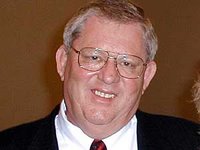







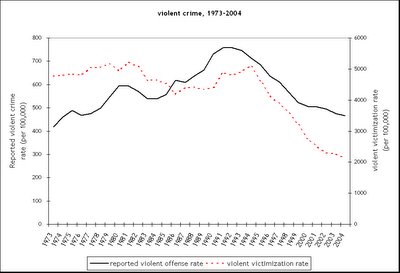
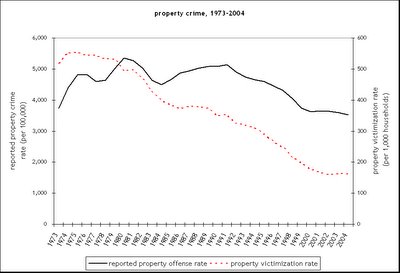

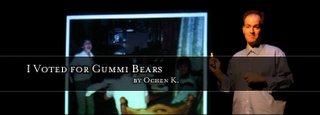
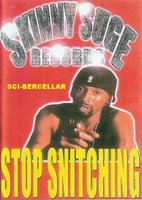

 Bobby Beasley
Bobby Beasley






